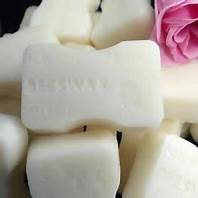Maintaining Healthy Skin - Cosmetics Unmasked








Maintaining Healthy Skin - Cosmetics Unmasked
The condition of your skin depends on many factors. poor diet, illness, and age cal all contribute to the loss of collagen from your skin, reducing its elasticity and forming fine lines and wrinkles. This process is accelerated by smoking and by the dehydrating effects of alcohol and of ultraviolet radiation from the sun and sunbeds.
A healthy diet containing fresh fruit and vegetables should provide an adequate intake of proteins, minerals, and vitamins A, B, and C - all of which are essential for healthy skin. Rapid dieting can rob your skin of these essential nutrients and an inadequate intake of liquid (i.e., water) can dehydrate your skin.
Lack of exercise will lead to deterioration in muscle condition, directly affecting the tone and firmness of your skin. stress, tension, and tiredness caused by inadequate sleep, will all take their toll on your skin.
Old Wives' tales - Herbal Skin Care
Comfrey leaves, feverfew, mint, nettle, and rose petal infusion (rose water) are all said to be good for the skin. Borage leaves, camomile, elder, fennel leaf infusion, marigold leaves, and marshmallow are all claimed to soften and smooth rough skin. Elder, lovage, and parsley are said to lighten the colour of skin, and remove freckles and minor skin blemishes.
There is no evidence that these herbal treatments work, but then again, there is no evidence that they don't either! Try them but be careful - parsley and camomile can both cause contact allergies and dermatitis. The active ingredient in camomile is Bisabolol, which is often added to cosmetics. It also causes contact allergies and dermatitis.
Hormone changes probably have the most instantly noticeable effect on the skin . We all remember the appearance of adolescent spots, zits, and greasy skin during puberty, and changes in the skin condition often accompany menstruation, pregnancy, menopause and, sometimes, the use of HRT (hormone replacement therapy) or the contraceptive pill.
It is important to look after your skin by keeping it clean and, and if you have dry skin that becomes cracked or sore, by using a suitable moisturizer. A large majority of women use moisturizers regularly and often seek out the more prestigious brands that claim to be hypoallergenic or to keep your skin looking firm and young.
It must be said, however, that too much reliance is placed on the wild claims made by cosmetics' manufacturers, and a vast amount of money is wasted on expensive gimmicks containing liposomes, vitamins, and collagen. Many of these products are no better than basic moisturizing creams or lotions that contain just oils and water.
Whatever you use, it is important you find one that suits your skin and that you avoid anything that causes even minor irritation. "No pain, no gain" is utter nonsense when it comes to looking after your skin.
Some skin-care products contain keratolytic chemicals that dissolve the outer, horny layer, and sometimes the deeper layers. manufacturers claim that this revitalizes your skin, or reveals fresher, younger skin - dissolving away fine lines and wrinkles.
These chemicals can cause severe skin irritation and can encourage your skin to thicken, locking you into a cycle of using these skin-peeling cosmetics. Hair removal creams and lotions also contain corrosive chemicals that can leave the skin irritated and sore, and they have even been reported to cause deep burns, leaving permanent scars.
Reference: Cosmetics Unmasked: Dr Stephen & Gina Antczak
Articles-Latest
- Skin tags: Why they develop, and how to remove them
- So That’s Why Your Skin Gets Crepey As You Get Older
- Eye Infection from False Eyelashes
- Teeth stain removal and whitening solutions
- Benefits of collagen for skin
- Why vitamin E should be part of your skincare regime
- Can gray hair be reversed?
- Hair loss affects 1 in 10 women before the menopause – here’s how to treat it
- Conscious ageing and Black skin: What happens when Black does crack?
- Your skin color may affect how well a medication works for you — but the research is way behind
- The C word Cancer
- Astringents
- How does light therapy work? The science behind the popular skincare treatment
- The Most Offensive Fashion Police Criticisms of All Time
- Everything you need to know about lip filler migration, as told by the experts
- Pig semen and menstrual blood – how our ancestors perfected the art of seduction
- Everything you need to know about benzoyl peroxide
- We've bleached, relaxed, and damaged our hair to make ourselves look more white
- Will this be the year that facial filler is cancelled?
- Shock of the old: 10 painful and poisonous beauty treatments
Cosmetic ingredients
LOGIN
Who's On Line
We have 46 guests and no members online
Articles-Most Read
- Home
- White Bees Wax
- Leucidal
- Cosmetic Preservatives A-Z
- Caprylyl Glycol
- Cosmetics Unmasked - How Safe Are Colorants?
- Cosmetics Unmasked - Choosing Ingredients
- Cosmetics Unmasked - Colorants And Fragrances
- EcoSilk
- Toxic Beauty - Who's Looking At Cosmetics?
- Cosmetics Unmasked - Fragrances
- Microbes and Cosmetics
- Chemicals Lingering In The Environment
- Microbes and Safety Standards
- Yellow Bees Wax
- Potassium Sorbate
- Toxic Beauty - Hazardous To Your Health
- What's Happening in the USA - Cosmetic Regulations - Toxic Beauty
- Synthetics In Cosmetics - The Industry Fights Back
- Fresh Goat's Milk Soap
- Active Ingredients
- Cosmetics Unmasked - Listing Cosmetics
- Toxic Beauty - Cocktails and Low Doses
- Natural Waxes A-Z
- Natural Butters A-Z



